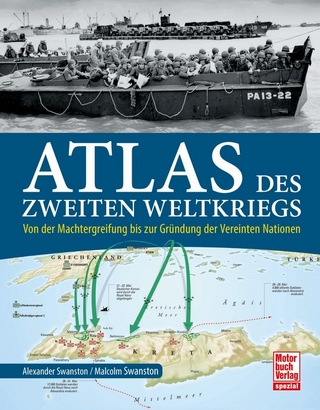
Heisenberg and the Nazi Atomic Bomb Project, 1939-1945
A Study in German Culture
Seiten
2002
University of California Press (Verlag)
978-0-520-22926-6 (ISBN)
University of California Press (Verlag)
978-0-520-22926-6 (ISBN)
Werner Heisenberg's task was to build an atomic bomb for Nazi Germany. What precisely did Heisenberg know about the physics of the atomic bomb? How deep was his loyalty to the German government during the Third Reich? Assuming that he had been able to build a bomb, would he have been willing? This book answers these questions.
No one better represents the plight and the conduct of German intellectuals under Hitler than Werner Heisenberg, whose task it was to build an atomic bomb for Nazi Germany. The controversy surrounding Heisenberg still rages, because of the nature of his work and the regime for which it was undertaken. What precisely did Heisenberg know about the physics of the atomic bomb? How deep was his loyalty to the German government during the Third Reich? Assuming that he had been able to build a bomb, would he have been willing? These questions, the moral and the scientific, are answered by Paul Lawrence Rose with greater accuracy and breadth of documentation than any other historian has yet achieved. Digging deep into the archival record among formerly secret technical reports, Rose establishes that Heisenberg never overcame certain misconceptions about nuclear fission, and as a result the German leaders never pushed for atomic weapons. In fact, Heisenberg never had to face the moral problem of whether he should design a bomb for the Nazi regime. Only when he and his colleagues were interned in England and heard about Hiroshima did Heisenberg realize that his calculations were wrong.
He began at once to construct an image of himself as a 'pure' scientist who could have built a bomb but chose to work on reactor design instead. This was fiction, as Rose demonstrates: in reality, Heisenberg blindly supported and justified the cause of German victory. The question of why he did, and why he misrepresented himself afterwards, is answered through Rose's subtle analysis of German mentality and the scientists' problems of delusion and self-delusion. This fascinating study is a profound effort to understand one of the twentieth century's great enigmas.
No one better represents the plight and the conduct of German intellectuals under Hitler than Werner Heisenberg, whose task it was to build an atomic bomb for Nazi Germany. The controversy surrounding Heisenberg still rages, because of the nature of his work and the regime for which it was undertaken. What precisely did Heisenberg know about the physics of the atomic bomb? How deep was his loyalty to the German government during the Third Reich? Assuming that he had been able to build a bomb, would he have been willing? These questions, the moral and the scientific, are answered by Paul Lawrence Rose with greater accuracy and breadth of documentation than any other historian has yet achieved. Digging deep into the archival record among formerly secret technical reports, Rose establishes that Heisenberg never overcame certain misconceptions about nuclear fission, and as a result the German leaders never pushed for atomic weapons. In fact, Heisenberg never had to face the moral problem of whether he should design a bomb for the Nazi regime. Only when he and his colleagues were interned in England and heard about Hiroshima did Heisenberg realize that his calculations were wrong.
He began at once to construct an image of himself as a 'pure' scientist who could have built a bomb but chose to work on reactor design instead. This was fiction, as Rose demonstrates: in reality, Heisenberg blindly supported and justified the cause of German victory. The question of why he did, and why he misrepresented himself afterwards, is answered through Rose's subtle analysis of German mentality and the scientists' problems of delusion and self-delusion. This fascinating study is a profound effort to understand one of the twentieth century's great enigmas.
Paul Lawrence Rose is Mitrani Professor of Jewish Studies and European History at Pennsylvania State University. His recent books include Wagner: Race and Revolution (1992) and German Question/Jewish Question (1990).
| Erscheint lt. Verlag | 30.1.2002 |
|---|---|
| Zusatzinfo | 1 table |
| Verlagsort | Berkerley |
| Sprache | englisch |
| Maße | 152 x 229 mm |
| Gewicht | 499 g |
| Themenwelt | Literatur ► Biografien / Erfahrungsberichte |
| Natur / Technik ► Fahrzeuge / Flugzeuge / Schiffe ► Militärfahrzeuge / -flugzeuge / -schiffe | |
| Geschichte ► Allgemeine Geschichte ► Neuzeit (bis 1918) | |
| Geisteswissenschaften ► Geschichte ► Regional- / Ländergeschichte | |
| Naturwissenschaften ► Physik / Astronomie ► Atom- / Kern- / Molekularphysik | |
| Sozialwissenschaften ► Politik / Verwaltung | |
| ISBN-10 | 0-520-22926-6 / 0520229266 |
| ISBN-13 | 978-0-520-22926-6 / 9780520229266 |
| Zustand | Neuware |
| Haben Sie eine Frage zum Produkt? |
Mehr entdecken
aus dem Bereich
aus dem Bereich
Infanterie & Artillerie
Buch | Hardcover (2023)
Motorbuch Verlag
34,90 €
von der Machtergreifung bis zur Gründung der Vereinten Nationen
Buch | Softcover (2023)
Motorbuch Verlag
24,90 €


